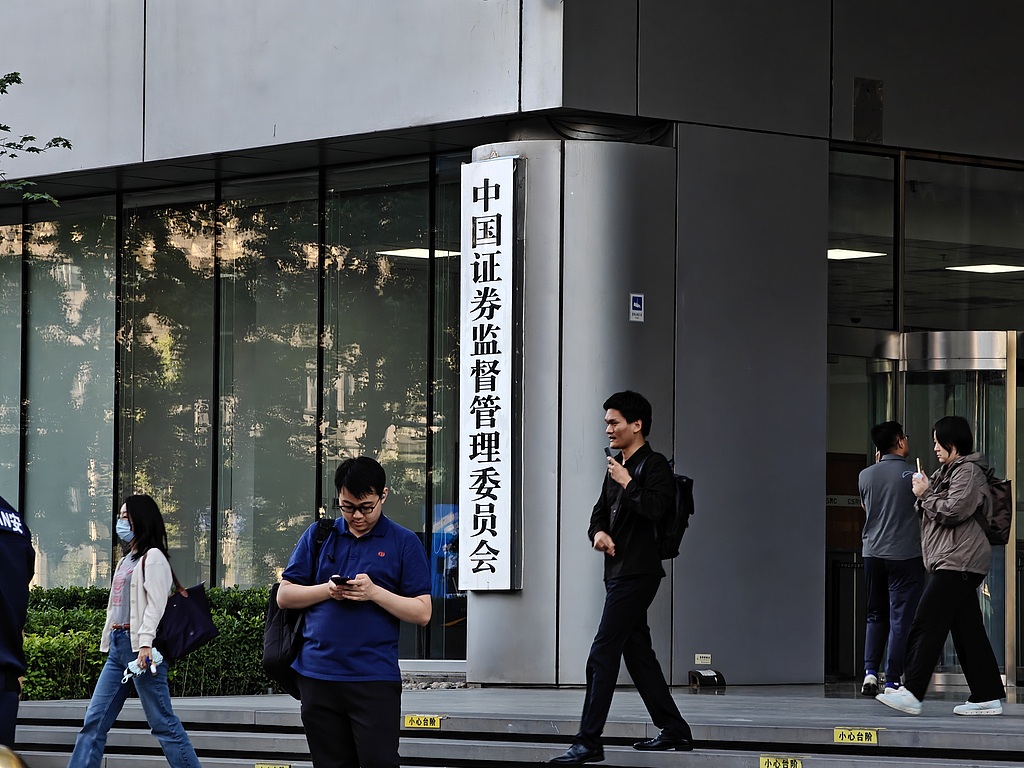U.S. listings by Chinese firms face mounting challenges on both sides of Pacific

While new Nasdaq rules threaten to derail many smaller U.S. listings by Chinese companies, China’s securities regulator is also stepping up its scrutiny of such listings
Key Takeaways:
- China’s securities regulator has been increasing its scrutiny of Chinese firms aiming to list in the U.S., asking questions on a growing number of topics
- The scrutiny comes as the Nasdaq prepares to implement new rules that would also place tough new requirements on Chinese firms applying to list on the exchange
By Chen Ruzhen
A road to the capital markets for many Chinese companies that once culminated with a listing on Wall Street is rapidly becoming a dead end.
Such new listings have slowed to a trickle lately, squeezed on both sides of the Pacific by increasingly tough regulatory scrutiny in both the U.S. and China. First the U.S. turned up the heat on small Chinese listings that have become the new norm by announcing restrictive new measures in September. Now, investment bankers are also complaining that new listing applications are coming under lengthy scrutiny by Chinese regulators.
“Many Chinese companies are seeking a U.S. listing, but the CSRC is choking the process,” a Chinese IPO lawyer told Bamboo Works, referring to the China Securities Regulatory Commission, China’s securities watchdog, which set up a filing system two years ago to vet all offshore share sales by Chinese companies.
Since much of the new scrutiny has only come in the last few months, the tough new climate has yet to show up in the data. The number of Chinese IPOs on U.S. exchanges jumped 54% during the first nine months of this year to 57. Most of those came from small companies raising $20 million or less, with the result that the average IPO fundraising amount slumped 18%, according to Deloitte.
An IPO banker said most of the U.S. listings by Chinese firms so far this year came from deals that were previously approved. Meantime, the number of new U.S. listings being approved by the CSRC is slowing to a crawl due to the regulator’s slow acceptance and vetting of applications. “One of my clients waited for two years and his patience is wearing thin,” the banker said.
Deal volume comes back, but fundraising lags
China clamped down on overseas listings in 2021 after Chinese ride-hailing firm DiDi Global went public in New York despite objections by Beijing. Activities finally revived in 2024 following two years of dormancy, and the momentum continued into this year.
The 57 Chinese companies that listed in the first nine months of 2025 raised a total of $1.05 billion, according to Deloitte. That followed a record-breaking year in 2024, when 64 Chinese companies went public on American exchanges, according to U.S. law firm K&L Gates.
But the listing boom was dominated by small companies. The average Chinese IPO in 2024 raised just $50 million in proceeds, down from over $300 million in 2021, according to the U.S.-China Economic and Security Review Commission (USCC).
“Small-cap issuers made up the vast majority of these offerings as Chinese blockbuster, multibillion-dollar IPOs remain absent on U.S. markets,” the commission said in a March report. “The smaller scale of these listings is in part due to heightened tensions in the U.S.-China relationship, but it also reflects increased scrutiny by Chinese regulators and new regulations designed to give Beijing greater control and oversight of overseas fundraising activities.”
Tighter control
The CSRC now scrutinizes a U.S.-bound IPO as if it were vetting a domestic listing, said the IPO lawyer. That appears to differ from the earlier approach when a much higher volume of U.S.-bound listings were being approved. Now, regulators are examining a wide spectrum of topics for U.S.-bound listings, from corporate governance and connected transactions, to stock incentive schemes and share transfer history.
Many Chinese companies seeking offshore listings frequently adopt a financial structure called variable interest entity, or VIE, to circumvent China’s foreign investment restrictions. “But now, many of our candidates were urged by the CSRC to tear down VIE,” the lawyer said. Such a restructuring would turn contractual arrangements into direct ownership, spawning many tax and compliance issues, he added.
Companies in sensitive sectors also need nods from Chinese industry regulators who must confirm that their listings don’t create any data and national security risks.
Such new red tape was on display in one of the CSRC’s own recent disclosures.
According to the CSRC’s Nov. 7 data, GoodFaith Technology Inc., a Chinese provider of loan risk management services, submitted a Nasdaq listing application to the Chinese regulator on June 28, 2023. But more than two years later, the company is still being asked by the Chinese watchdog for additional information.
GoodFaith is not alone. More than 30 listing hopefuls, including Totem New Energy Technology and Zhong Yuan Bio-Technology Holdings, have been trapped in the vetting process for more than a year, according to the CSRC disclosures. That compares to a theoretical waiting period of six to nine months usually advised by lawyers.
What’s more, many U.S.-bound companies are finding it increasingly difficult even to get into the Chinese regulator’s front door. The CSRC has accepted just 23 applications for U.S. listings so far this year, compared with 277 Chinese companies that have applied for Hong Kong listings since mid-April and whose applications are currently being reviewed.
“Hong Kong IPOs got support from Chinese authorities, which are fast-tracking listing approvals,” said a second lawyer.
Hong Kong, which is part of China but has a large degree of autonomy, has claimed the top spot globally in terms IPO fundraising so far this year. But Chinese regulators have more things to worry about with listings heading for the U.S., the lawyer said, including national security concerns, the broader impact such listings could have on China’s international image, and eligibility under tougher listing rules in the U.S., he said.
National security
The Nasdaq, which has hosted nearly all U.S. listings by Chinese companies in the recent revival, in September proposed stricter listing standards as part of a broader effort to crack down on potential market manipulation. The new rules would require companies primarily operating in China to raise a minimum of $25 million in their IPOs, and maintain a minimum $15 million market value of their public float – triple the current threshold of at least $5 million.
The new standards are still pending approval from the U.S. securities regulator, but could take effect soon after receiving such a green light, the Nasdaq said previously. “If the new thresholds are approved and become effective within this year, some Chinese enterprises could change their listing plans from Nasdaq to Hong Kong,” Deloitte said.
The tighter scrutiny also comes amid growing distrust and rivalry between Beijing and Washington. In early April, when Sino-U.S. trade tensions escalated, U.S. Treasury Secretary Scott Bessent raised the possibility of delisting U.S.-listed China-based companies.
In May, the Financial Times reported that two Republican lawmakers had also urged the U.S. Securities and Exchange Commission to delist Chinese companies, including internet giants Alibaba, Baidu and JD.com, citing national security risks.
“Investors in Chinese companies may support activities that are contrary to U.S. national interests, including the development of technology used for censorship and surveillance and in support of the military,” the the U.S.-China Economic and Security Review Commission said in its March report. The commission added that the U.S. is considering regulations that may restrict certain U.S. investments in Chinese companies involved in specific advanced technologies.
Lawyers say growing geopolitical and regulatory risks mean Chinese companies desperate to list in the U.S. need to increasingly think out of the box to bring their plans to fruition. “Some companies can spin off their offshore units for a standalone U.S. listing,” said the second IPO lawyer. There’s no assurance that such a structure can circumvent regulatory scrutiny, but “it’s a model worth exploring,” he added.
To subscribe to Bamboo Works weekly free newsletter, click here





